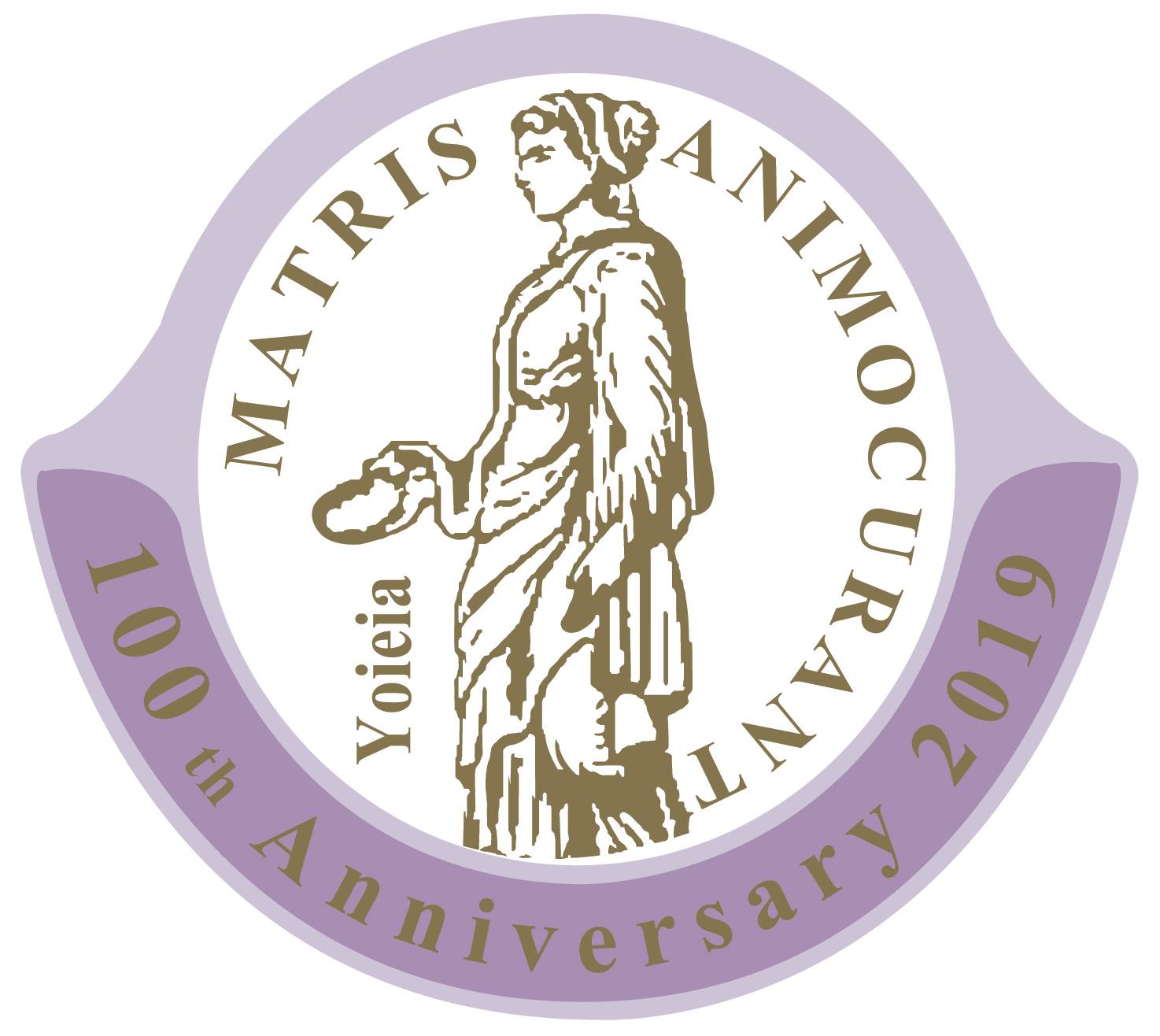Report from Vice President for North America

Connie Newman MWIA Regional Vice President for North America
Greetings All,
Most of this report will summarize the parallel event co-sponsored by MWIA during the 69th meeting of UN CSW (Committee on the Status of Women), March 2025 in New York City.
Prior to CSW, MWIA wrote a Statement Health equity is essential for gender equality, which was published on the UN Women website, Link https://undocs.org/E/CN.6/2025/NGO/116 This Statement advocated for education on sex and gender differences in disease, evidence based and gender-focused healthcare, contraception, access to safe and legal abortion, end to violence against women and girls.
After the conclusion of CSW, I co-chaired an Education Summit (in Massachusetts), co-sponsored by AMWA, on the Health of Women. This Summit provided an update on educational efforts to bring sex and gender-based differences into the curricula of medical and other health professional schools. In April, MWIA joined NGO CSW Geneva, which does significant work on women’s rights, women’s health, education, and ending violence against women and girls. I represent MWIA at bi-monthly meetings and joined the AI and Health Task Force.
MWIA Program at CSW 2025
The theme of CSW was progress 30 years after the Beijing Declaration in 1995. The MWIA event was held March 19, 2025 at the Church Center, UN Plaza, and also virtually.
The program was co-sponsored by MWIA, Soroptimist International, International Health Awareness Network, Every Woman Treaty and the American Medical Women’s Association. As the MWIA UN Representative I took the lead in organizing the program which included speakers from Australia, Nigeria, Canada, Lebanon, Mexico and the United States. Dr. Bev Johnson, Alternate UN Representative, provided valuable assistance.
Women’s Health was one of the 12 areas of concern in the Beijing Declaration (1995). The objective of our program was to review the accomplishments in women’s health in the past 30 years, the gaps remaining, current challenges and solutions. The meeting was held in person and virtually, due to the technological expertise of Dr. Rosemary Ogu (President, MWIA Nigeria).
Planning team members included Dr Eleanor Nwadinobi (President, MWIA), Leigh Ellwood-Brown (Director of Advocacy Soroptimists international), Dr Gabrielle Casper (President, International Health Awareness Network, Dr. Connie Newman, (MWIA VP North America and UN Representative; Past President, AMWA and Dr Beverly Johnson (former President Federation of Medical Women of Canada, Ottawa, and MWIA UN Representative).
After introductions by the co-sponsors, I summarized how the Beijing Declaration addressed women’s health. The Declaration stated that:
Women have the right to the enjoyment of the highest attainable standard of physical and mental health. The enjoyment of this right is vital to their life and well-being and their ability to participate in all areas of public and private life.
All women have the right to control all aspects of their health, including fertility, and this is basic to their empowerment.
Health is a state of complete physical, mental and social well-being and not merely the absence of disease or infirmity.
Health and well-being elude most women.
Women have different and unequal access to basic health resources for the prevention and treatment of disease.
To counter the challenges and to improve the health of women, the Declaration called for actions by governments, NGOs, employers and others. The Beijing Declaration also asked for research on health and diseases in women, with disaggregation of data by biological sex, age, ethnicity, geography, socioeconomic status and other variables.
Dr. Sorosh Roshan (Founder of the International Health Network) talked about her experiences at the Beijing meeting in 1995 and showed a film highlighting activism during the Beijing meeting. Link to the film: https://www.dropbox.com/scl/fi/b75c9yatz67i08l5jscmo/video-for-march-19.mp4?rlkey=v6pxllj4qnmiu3cw7gb5np1n2&st=36kze47v&dl=0
A panel discussion was moderated by Berthe de Vos-Neven, Soroptimists International Lead Representative to UN, and Vice President, NGO CSW Geneva.Panelists, their topics and main messages were:
Veronica-Rodriguez-Torres, MD, President, Pan American Women’s Alliance, MWIA Mexico Topic: Global perspective on breast cancer since 1995.
Messages:
Self-palpation and, therefore, clinical diagnosis lead us to find late stages of cancer.
A consensus must be carried out in each country to develop specific strategies according to its problem.
Mammography, the only timely diagnostic method: from analogue to artificial intelligence.
With directed education, everything. Without education, nothing.
Patricia Elias, Chief, Global Diplomatic Campaign, Every Woman Treaty
Topic: Violence against women and the need for an optional protocol for CEDAW – Convention on Elimination of Discrimination against Women)
Messages:
All forms of violence against women and girls can have short- and long-term health consequences. Violence can affect women’s physical health and their mental and emotional well-being, as well as the health and welfare of their children.
To improve women’s health, we must lower rates of violence and reduce women’s risk of violence across the globe.
A new Optional Protocol to CEDAW to end violence against women and girls offers a path. It would strengthen the global legal framework on addressing violence against women and girls by codifying norms and standards in a single, comprehensive document that addresses all forms of violence against women, under all circumstances and spheres, for all women globally. This tool would impact the entire world — with all nations working comprehensively and actively on the problem, we stand to improve women’s and girls’ health worldwide.
Orchid Alexander MD, Obstetrics and Gynecology, Morristown NJ Medical Center
Topic: maternal health (by video)
Messages:
Maternal health is crucial for gender equality; Progress has been made, but more work is needed
Collective action required from governments, NGOs, and communities
Rhema Joy Hooper, MWIA Youth Representative, Lehigh College of Health
Topic: infant mortality
Messages:
Environmental risk factors for pregnant women and early mothers greatly increase the chance for their children to pass away within their first year of birth.
It is our job as NGOs to continue to mobilize efforts to supply basic screenings for pregnant mothers and infants within their child’s first year of life.
Hala Ghoson, PharmD, Founder and President, United Voices for Global Impact
Topic: impact of AI on women’s health
Messages:
Artificial Intelligence (AI) is transforming healthcare by improving diagnostics, treatment, and personalized medicine.
However, while there are significant opportunities, there are also challenges and risks.
For algorithms for health, to be accurate, data on women is essential.
The impact of AI on women’s health is shaped by its potential to close gender gaps, as well as the risk of reinforcing existing biases.
Dr. Bev Johnson moderated questions from the audience to the panelists. Towards the end of the program, three points for action were presented:
1. With stronger laws on violence against women and girls, and comprehensive healthcare for survivors, we can markedly improve women’s and girls’ health across the globe. Join the call for a new optional protocol to CEDAW to end violence against women and girls. Please visit everywoman.org/take-action
2. Address technology facilitated gender-based violence and sexual abuse, including support for victims of non-consensual intimate image distribution.
3. Address the mental health of women throughout the lifecycle through training health care providers and the community, increasing clinics, reducing stigma, and promoting awareness of the importance of emotional and psychological wellbeing.
The program was concluded by Siew Yong Gnanalingam, President of Soroptimist International 2024 – 2025
I look forward to seeing many of you in Cairo!
Professor Connie Newman
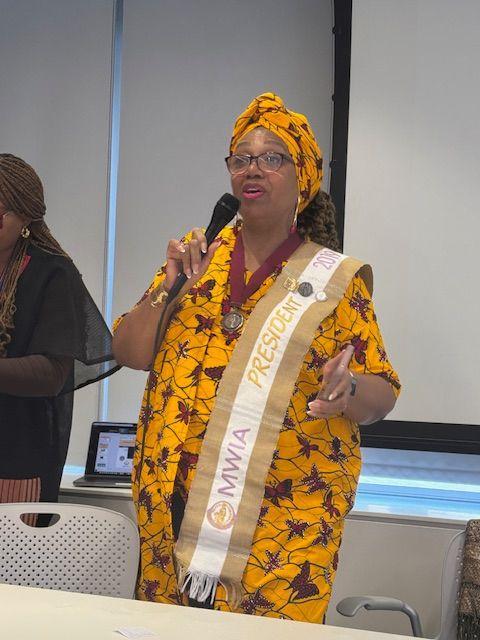
Fig 1. MWIA President Dr. Eleanor Nwadinobi Welcome Greetings

Fig 2. on the right, Dr, Sorosh Roshan, talking about experiences at the Beijing meeting in 1995
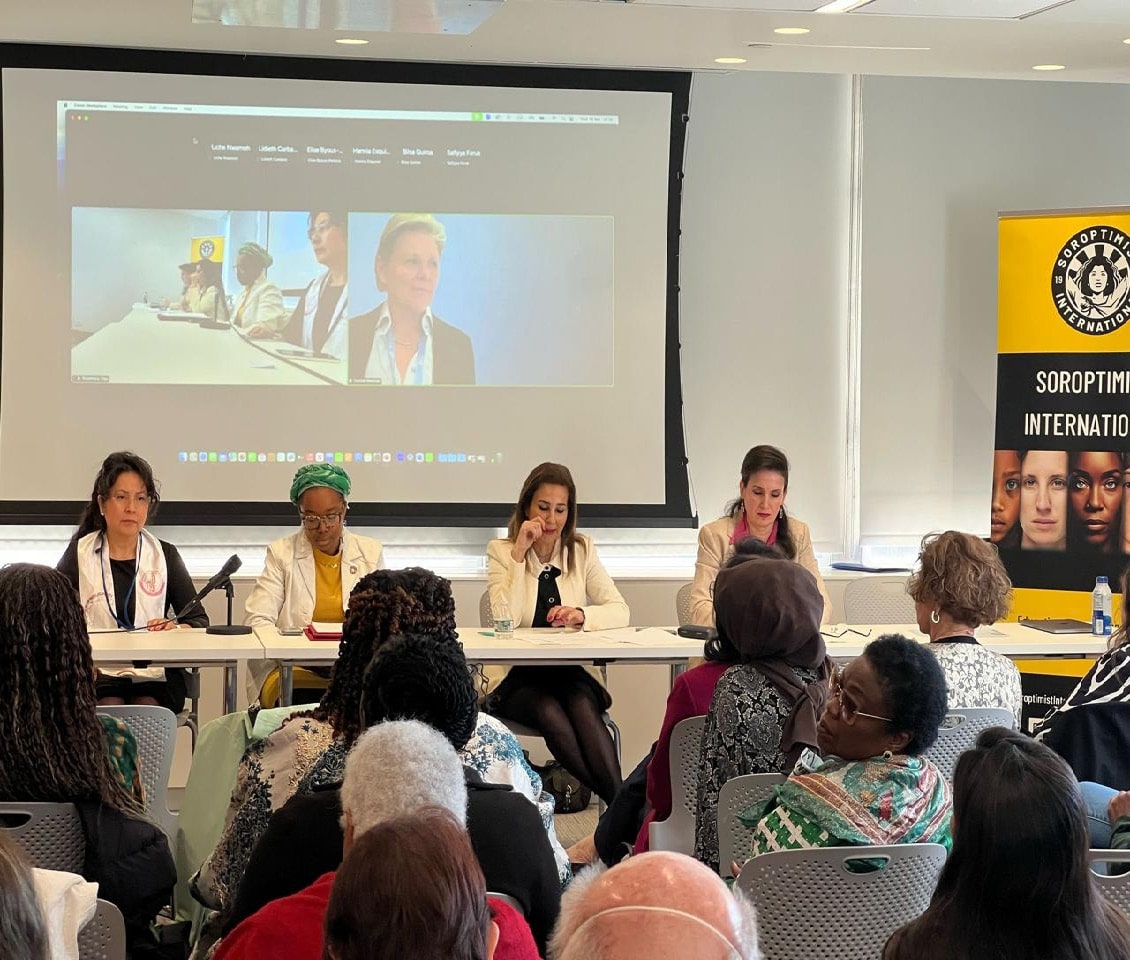
Fig 3. Moderator: Berthe de Vos-Neven (screen), Panelists left to right- Dr Veronica-Rodriguez-Torres, MD, Rhema Joy Hooper, Patricia Elias, and Dr. Hala Ghoson, PharmD
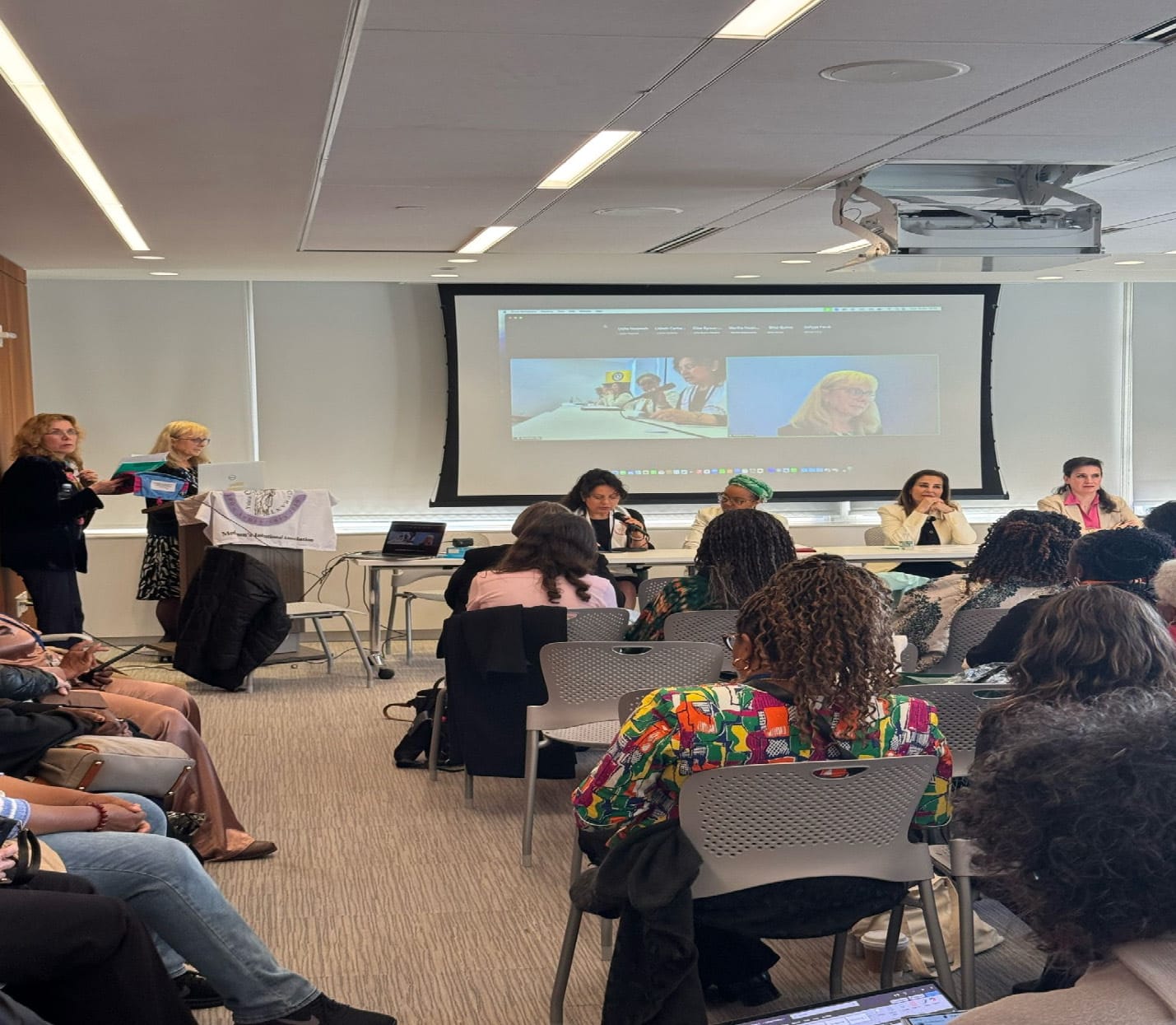
Fig 4. on the right, Drs. Connie Newman and Bev Johnson
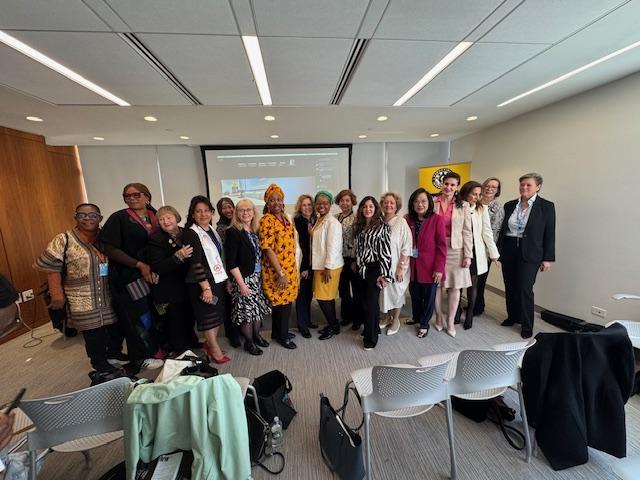
Fig 5. Event Wrap Up Photo
